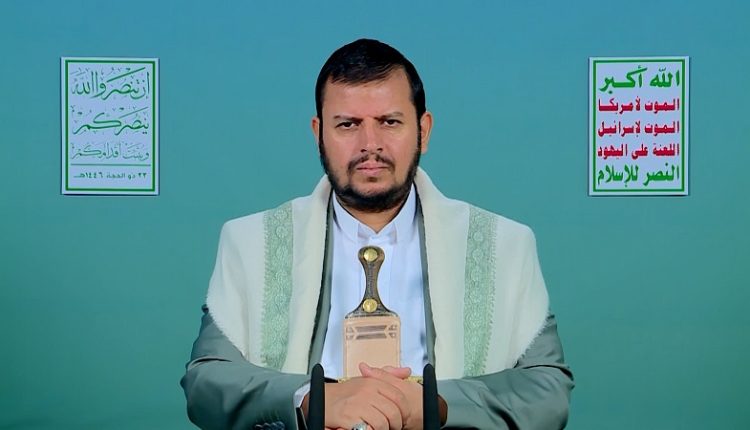The Israeli Aggression on Iran in Sayyed Abdul-Malik al-Houthi’s Speech: Breaking Zionist Prestige and Reinforcing Regional Deterrence
In his latest address on regional and international developments, Sayyed Abdul-Malik Badr al-Din al-Houthi, the leader of the Yemeni revolution, painted a comprehensive picture of the evolving geopolitical confrontation with the Zionist entity. He positioned Iran, Gaza, Lebanon, and Yemen along a single front line in what he described as a unified battle against aggression and hegemony.
The Israeli assault on the Islamic Republic of Iran marked, in his view, a strategic turning point—exposing both the structural vulnerability of the Zionist enemy and the complicit silence of the Western powers.
Israeli Attack on Iran: From Treachery to Tactical Failure
Mr. al-Houthi described the Israeli strike on Iran as a calculated act of betrayal, facilitated by American deception. While Oman-mediated diplomatic talks were ongoing concerning Iran’s nuclear file, drones and missiles were already en route to strike Iran’s military and scientific installations. According to Sayyed al-Houthi, the U.S. did not seek dialogue but rather used negotiations as a front for war preparation.
This betrayal underscored the Zionist entity’s intent to shift the conflict directly toward the core of the Resistance Axis—targeting Iran as the strategic, ideological, and military backbone of regional opposition to U.S.-Israeli dominance.
Iran’s Retaliation: A Strategic Reset
Mr. al-Houthi highlighted Iran’s wide-scale, precise retaliatory strikes as a defining moment in regional deterrence. The use of hypersonic and ballistic missiles wasn’t merely about destruction—it struck at the psychological core of the Israeli entity, which responded with censorship, panic, and paralysis.
The Iranian response, as he framed it, redefined the deterrence equation: any attack on the Resistance’s center of gravity—like Iran—will incur a heavy price, eliminating the enemy’s advantage of surprise or impunity.
Targeting Scientists and Sovereignty: The Enemy’s Ideological Fear
Mr. al-Houthi argued that the core Israeli-Western fear is not Iran’s nuclear capability, but rather its scientific advancement, sovereign independence, and successful Islamic model.
The deliberate targeting of Iranian scientists, alongside military and civilian infrastructure, reveals, he said, the Zionist regime’s deep-seated hatred for intellectual empowerment in any free and sovereign Muslim nation.
The Western Role: Not Just Complicity, but Direct Partnership
The speech heavily condemned Western powers—the U.S., U.K., France, and Germany—labeling them as full partners in the aggression, not just enablers. He criticized the Western narrative that justifies attacks on scientists and civilian sites as “self-defense,” exposing what he called the moral collapse of Western political ethics in service of Israel.
From Tehran to Sana’a: One Trench, One Battle
Mr. al-Houthi declared that the Resistance front—from Iran, Palestine, and Lebanon, to Yemen and Syria—is united in its battle, facing a single enemy with interconnected objectives.
This unity, he explained, is not rhetorical but strategic, aimed at confronting a Western-Zionist project to fragment the region and enable Israeli dominance politically, economically, and culturally.
Message to Islamic Nations: Sovereignty Requires Action
The speech included a direct address to Arab and Islamic governments: Neutrality is meaningless if national airspace is used to launch strikes on Iran or facilitate aggression. Sayyed al-Houthi dismissed formal statements of neutrality as hollow and called for concrete action—blocking access, refusing complicity, and adopting political and economic countermeasures.
Yemen: From Political Support to Battlefield Commitment
Reaffirming Yemen’s role in the Axis of Resistance, Sayyed al-Houthi vowed that naval and missile operations would continue as part of the “Battle of the Promised Liberation”. He emphasized that public demonstrations and mobilization activities are not symbolic rituals, but a form of sacred jihad.
He called for mass rallies on Friday in support of Palestine and Iran, urging Muslims to answer the divine call to confront American and Israeli tyranny—not only in spirit, but through visible political and military engagement.

